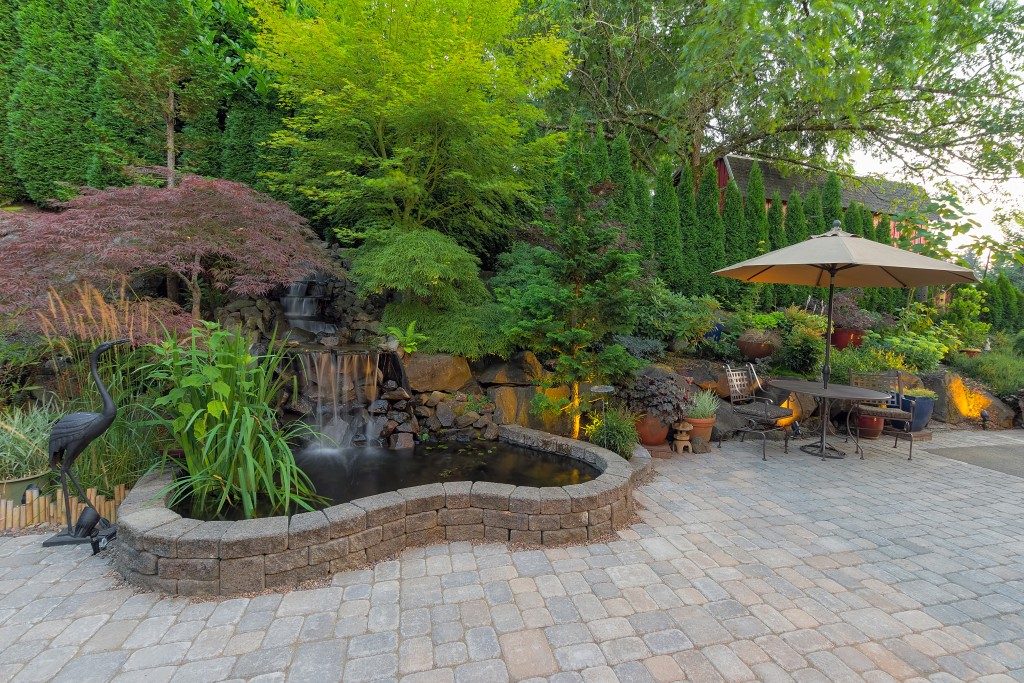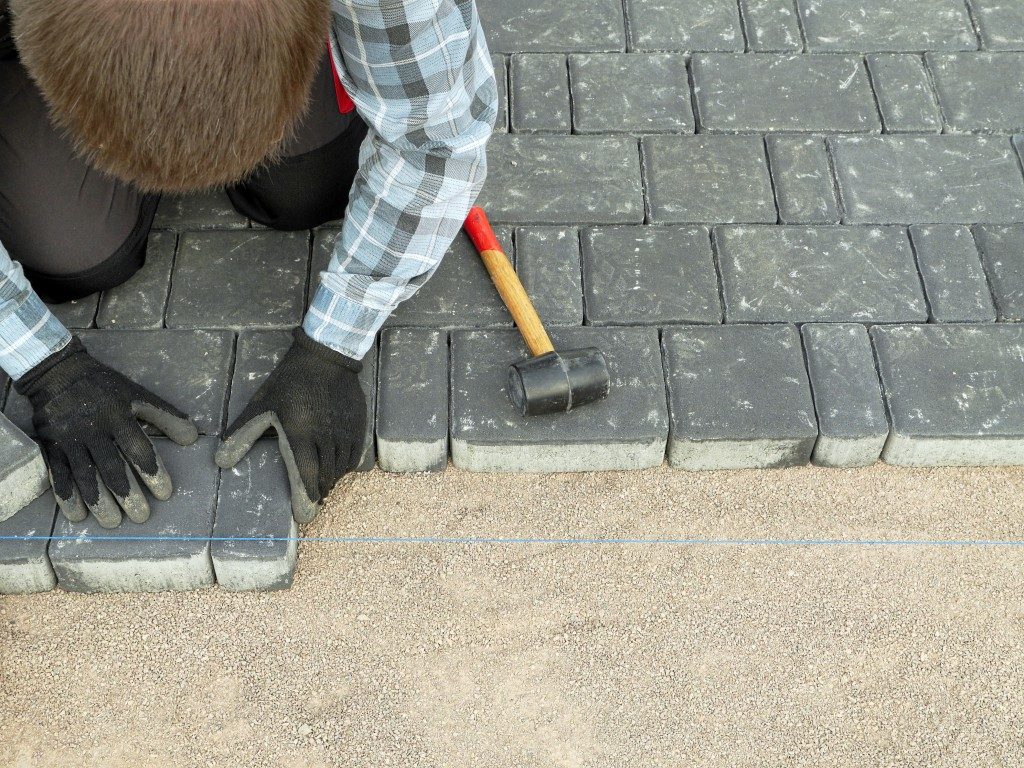A legendary building material that has stood the test of time and a smart choice if you ask experienced builders: We are putting the spotlight on concrete pavers – an excellent choice for parking lot and driveway paving. If installed properly, an outdoor concrete surface will last for as long as three decades!
Is it really the best choice? We’ll let you decide.
Interlocking versus Architectural
Pavers made from concrete are made from the same mixture of ingredients. These are cement, water, gravel, and sand. Concrete pavers come in two forms – interlocking and architectural. The interlocking type is made with a stronger mix.
The uniform joints characterizing interlocking pavers are facilitated by edge spacers, which are absent in the architectural slabs. The molded concrete slabs look like natural stone but are significantly thinner and may not be suitable for parking lots and driveways. Interlocking pavers are stiff and reliable and have a myriad of applications.
Factors affecting longevity and structural integrity
A concrete parking area is durable and does not require intensive maintenance. The durability of concrete surfaces is evident everywhere. Nevertheless, the quality of installation and soundness of the drainage system determine the longevity of a concrete surface.
A concrete pavement may still be prone to cracking, but the likelihood of this occurring is lowered with interlocking pavers. The combined flexibility and indestructibility of this paving system makes it ideal for locations that see high foot and vehicle daily.
Weather resistance
The climate is another confounding factor. Since pavers are exposed to the elements, we must evaluate one particular property of concrete – weather resistance. Some locations see more snow than others, and this is a significant concern. Fortunately, concrete pavers respond well to cold temperatures.
This building material can withstand repeated thawing and freezing cycles. Also, known methods of de-icing will not harm or damage concrete pavers. Shovels can be accommodated, and salt or calcium chloride application does not alter the structural integrity of the pavers.
Even snow melting devices are safe to use on concrete surfaces. How about in areas that see plenty of sun for most of the year? Concrete pavers fare well in hot weather equally well. Even when temperatures exceed 100 degrees Fahrenheit, concrete pavers will hold their own and not become oily.
Extreme heat could soften an asphalt surface, but concrete surfaces will not be affected in the same way. The light color of concrete surfaces could render them cool via reflection of light energy from the surface.
Custom design

If your paving area would benefit from a dash of color and out-of-the-box design, then you can still use concrete pavers. These days, pavers are the epitome of design flexibility. Find a contractor that can provide a specific color or shape/pattern.
The visual appeal of customized pavers can make your parking area or driveway the talk of the town for many years to come.
Concrete pavers are versatile and manufactured to withstand years of abuse. Manufactured under intense pressures, you can rely on the pavers to perform admirably despite consistent use. Interlocking units allow for flexibility and facilitate movement to resist cracking under stress.

